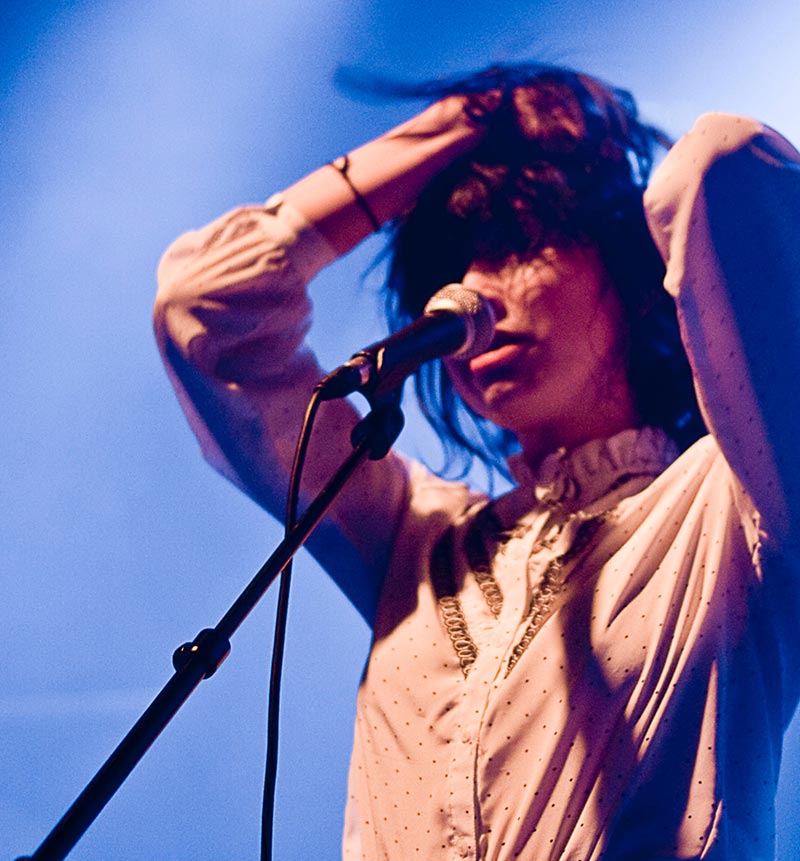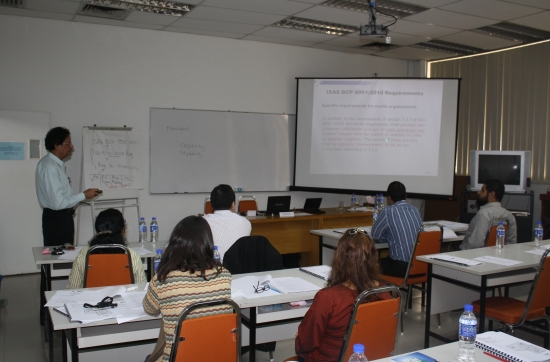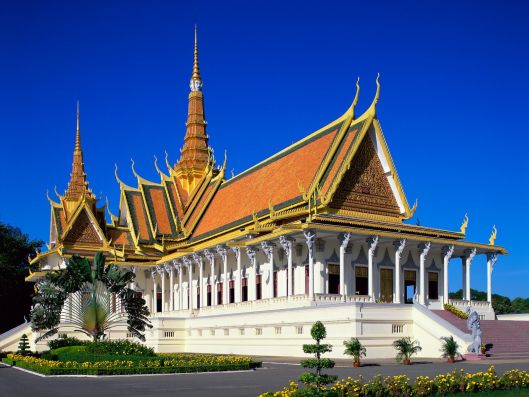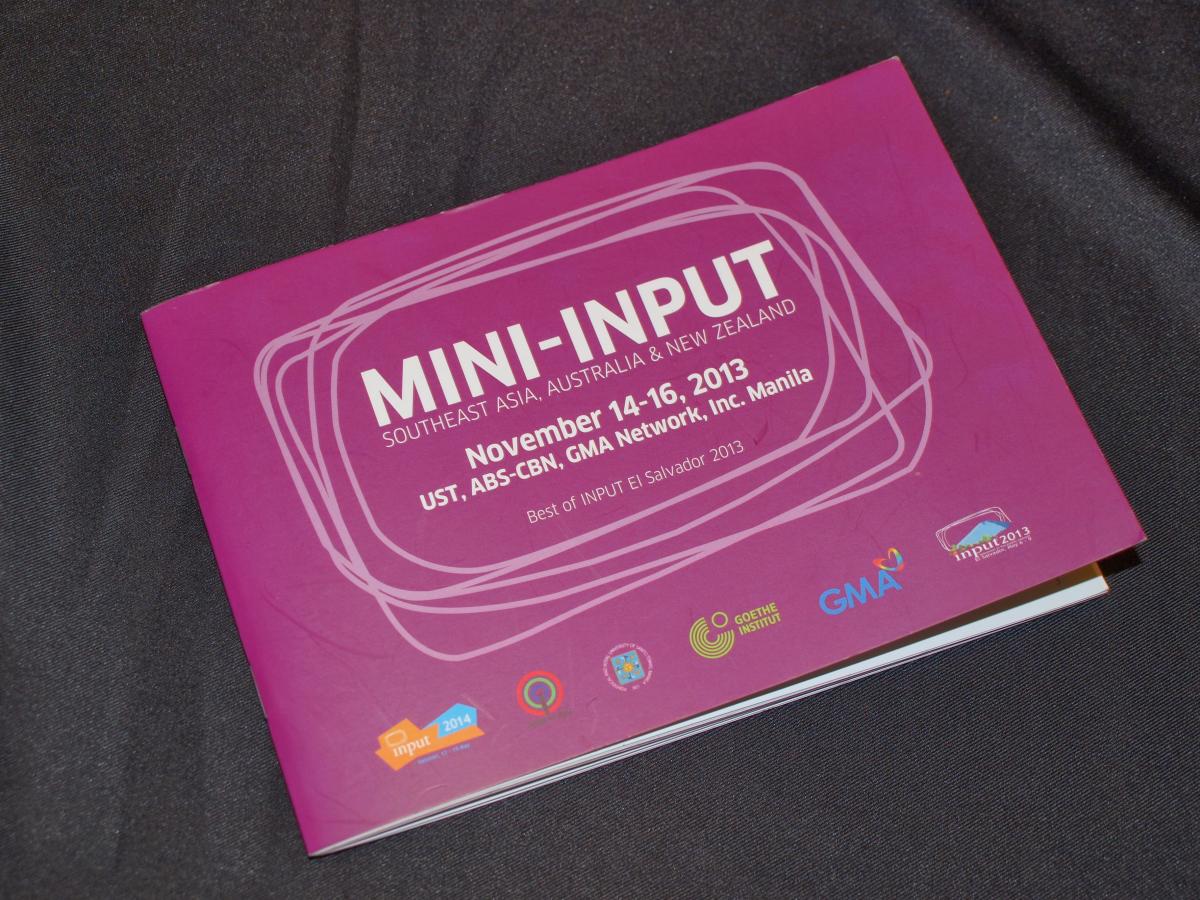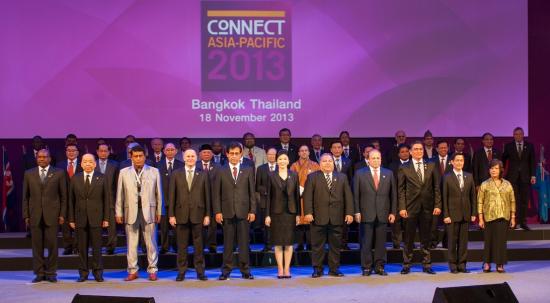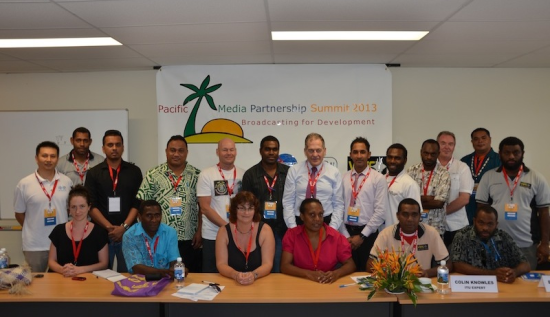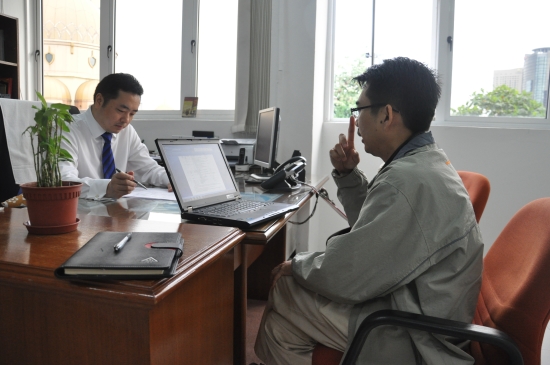The Asian Media Information and Communication Centre (AMIC) is delighted to announce that the 23rd AMIC Annual Conference will be held in Bangkok, Thailand from 9-12 July, 2014. The theme for the AMIC 2014 conference is Communicating in an e-Asia: values, technologies and challenges.
The Asian Media Information and Communication Centre (AMIC) is delighted to announce that the 23rd AMIC Annual Conference will be held in Bangkok, Thailand from 9-12 July, 2014. The theme for the AMIC 2014 conference is Communicating in an e-Asia: values, technologies and challenges.
The conference host is the Faculty of Communication Arts at Chulalongkorn University, Bangkok. Chulalongkorn University, the Pillar of the Kingdom, is Thailand’s first institution of higher learning and officially came into being in March, 1917.
Globally, the last decade has seen exponential growth in the use of mobile technologies and the Internet. From e-mail to e-governance, e-commerce to e-learning, Internet usage has changed the way the world communicates.
At the forefront of the electronic and digital revolution in Asia has been the mobile phone. Recent International Telecommunication Union (ITU) statistics indicate that in the period from 2005 to 2013, mobile (cellular) phone subscriber numbers in the Asia-Pacific region have soared from 833 million to 3,547 million users. The era of an e-Asia has dawned.
The benefits of instant, intranational and trans-border communication have impacted upon almost every aspect of life, with mobile phones and the Internet providing new pathways for inter-personal communication, business and commercial enterprise, community development, educational opportunity, governance and democratic reform. Information and communication technologies (ICTs) are an enabling factor in supporting marginalized societies to more beneficially interact with a broader citizenry, while the convergence of computers, media and telecommunications has created new platforms for entrepreneurship, education and political inclusion.
However, in the Asia-Pacific region, where cultural traditions and family values are hugely respected and deeply ingrained, the influences of a new ‘e-Asia literacy’ are impacting on social conventions, etiquette, language and community structures. In a homogenized international ‘knowledge society’ where communication processes transcend national boundaries, the retention of traditional values and ways of life are increasingly challenged.
AMIC Secretary-General, Martin Hadlow, said that next year’s AMIC international conference theme Communicating in an e-Asia: values, technologies and challenges recognised the huge changes now in progress in the Asian communication landscape.
Please download the call for papers by clicking here.
AMIC 2014 CONFERENCE ‘CALL FOR PAPERS’
The Asian Media Information and Communication Centre (AMIC) is delighted to announce that the 23rd AMIC Annual Conference will be held in Bangkok, Thailand from 9-12 July, 2014. The theme for the AMIC 2014 conference is Communicating in an e-Asia: values, technologies and challenges.
Launch of SGS Academy
SGS, one of the world’s leading inspection, verification, testing and certification company, launched the SGS Academy with the theme “Transforming People and Business” in Kuala Lumpur, Malaysia on 18 December 2013.
UNESCO’s Global Forum on Media and Gender: Towards a Global Alliance
The first-ever Global Forum on Media and Gender: Towards a Global Alliance organised by UNESCO was held from 2 - 4 December 2013 in Bangkok, Thailand. The purpose of this event on gender equality and media was to initiate processes that will link up to ongoing actions and add momentum to gender equality and women’s empowerment in and through the media.
Internal Audit Training for AIBD Staff
The two day in-house training on ISO & ISAS BCP Standards on Quality Management & Internal Auditing was organised by AIBD with the support of FES on 10 & 11 December 2013. All staff members of the Institute from the directorate, administration, programme, finance and IT departments participated.
Cambodia to Host GC 2014
AIBD Director Mr. Yang Binyuan paid an official visit to Cambodia from 26 to 29 November 2013 to contribute for successful preparations of the 40th Annual Gathering / 13th AIBD General Conference & Associated Meetings, to be hosted by the Ministry of Information in Phnom Penh, Cambodia from 13 to 15 August 2014.
Successful Second MINI-INPUT in Manila
Following the INPUT Conference held in El Salvador in May 2013, The Goethe-Institut organised a MINI-INPUT from 14 to 16 November 2013 in Manila, in association with ABS-CBN, GMA Network, Inc. and the University of Santo Tomas.
Connect Asia-Pacific: Smartly Digital
AIBD participated the Connect Asia-Pacific Summit 2013 jointly organised by the International Telecommunication Union (ITU) and Ministry of Information and Communication Technology of Thailand (MICT). The summit was held in Bangkok, Thailand on 18 November 2013.
PMPC 2013
The fourth Pacific Media Partnership Conference and associated workshops was held from 17 to 19 September 2013 in Port Vila, Vanuatu. The local host - Vanuatu Broadcasting and Television Corporation made all local arrangements to have a successful conference, jointly organised by AIBD and ABU since 2010.
Global Forum on Media and Gender
UNESCO and partners including AIBD have opened registration for the Global Forum on Media and Gender (GFMG), which will be held in Bangkok, Thailand from 2 to 4 December 2013.
AIBD Successfully Completes Yet Another Annual Surveillance Audit
The surveillance audit was successfully completed on 23 August 2013 at AIBD. The conclusion was that AIBD’s management system was in line with the requirements of the standard. The Institute has demonstrated the ability to maintain the system to systematically achieve the requirements for its services to AIBD’s members and partners within the scope of its policy and objectives during the period under review in 2012 and 2013.



